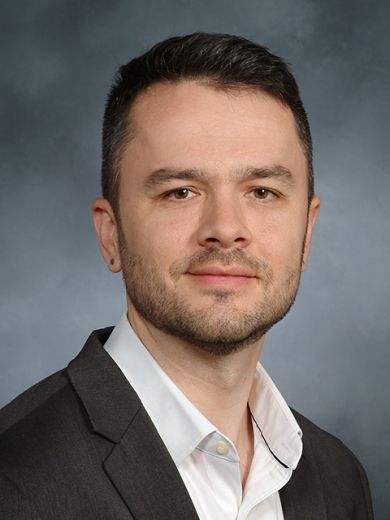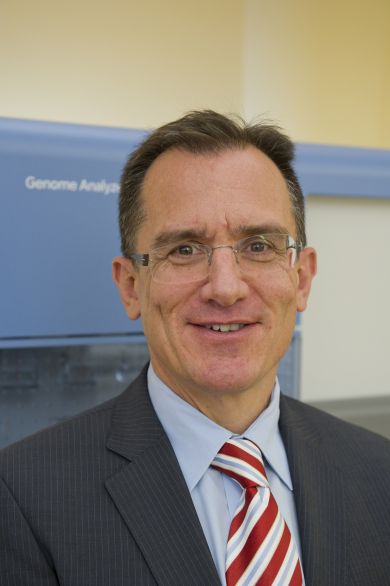Dual training has certainly benefited Marcin Imielinski, a molecular pathologist at Weill Cornell Medicine in New York City. "Where I am right now is exactly where I hoped I would be," he says. "I feel like I have a single career instead of two, which I think is a big challenge for all M.D.-Ph.Ds."
Imielinski earned his undergraduate degree in computer science and then entered a newly christened M.D.-Ph.D. program in genomics and computational biology at the University of Pennsylvania in Philadelphia in 2001. He then chose pathology for his clinical training because he wanted "synergy between his research and his future clinical role," he says. At Weill Cornell, Imielinski is participating in the precision oncology effort, which will sequence tumor DNA to match patients to particular therapies.
Imielinski is also building his own lab, which will focus on understanding the role of complex DNA rearrangements in cancer. Part of his task is to develop analytical and computational tools to make sense of the data. He also plans to leverage the latest sequencing technologies to understand how complex rearrangements impact the tumor epigenome and perturb cancer genome structure over time.
....
Precision medicine creates opportunities
The demand for such qualified people is set to grow, and not only within oncology. In January 2015, President Obama announced the Precision Medicine Initiative. Launched with a $215 million investment in the President's 2016 budget, the initiative aims to "give clinicians tools to better understand the complex mechanisms underlying a patient's health, disease, or condition, and to better predict which treatments will be most effective," according to a statement issued by the White House. The bulk of the funding, $130 million, will go to the National Institutes of Health to launch a population study that will follow 1 million Americans over many years to track their health; the National Cancer Institute will receive $70 million to develop more effective personalized approaches to cancer treatment; the U.S. Food and Drug Administration will receive $10 million to develop a database to advance innovation in precision medicine; and the Office of the National Coordinator for Health Information Technology will receive $5 million to develop interoperability standards and address privacy and secure data exchange issues.
The amount of funding relative to the task is small, says Mark Rubin, head of the Englander Institute for Precision Medicine at Weill Cornell Medicine and NewYork-Presbyterian Hospital, but "we are at the beginning," he adds. "That this is coming down from the government tells us that patients want access to their data to improve outcomes and that the government and regulatory agencies are going to make sure we find ways to make it happen."
Moving forward, working in precision medicine could be an option for anyone with a scientific or mathematical background, he adds. For example, engineers who design devices will be needed as well as experts in population biology and epidemiology. "The opportunities will only expand."




